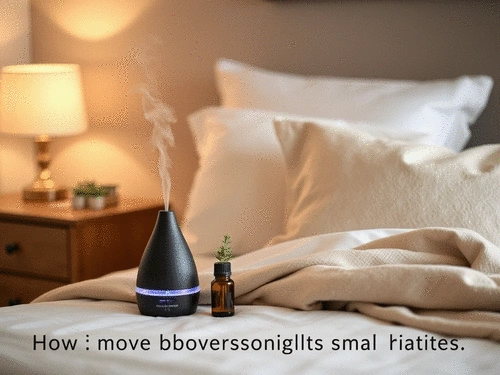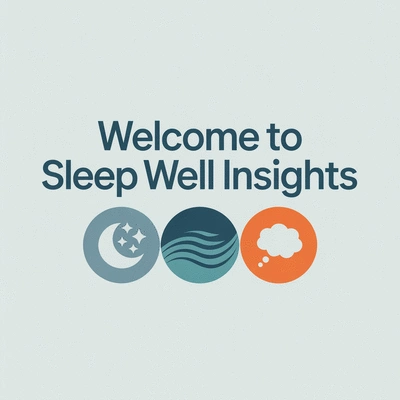Have you ever considered how your nightly habits could be sabotaging your sleep? The connection between poor sleep practices and insomnia is more profound than many realize, often rooted in lifestyle choices and societal pressures. Understanding this relationship is the first step toward reclaiming restful nights.
What You Will Learn
- Recognize common poor sleep habits, such as irregular sleep schedules and excessive screen time.
- Understand how cultural attitudes towards productivity can negatively impact sleep quality.
- Explore the bidirectional relationship between sleep and mental health, highlighting how insomnia can exacerbate anxiety and depression.
- Learn actionable strategies for improving sleep hygiene, including establishing a calming bedtime routine and managing caffeine intake.
The Intertwined Cycle of Poor Sleep and Mental Wellness
This visual illustrates the cyclical relationship between poor sleep habits, mental health, and the practical steps to break this cycle, highlighting key factors and their impact on overall well-being.
Poor Sleep Habits & Development
- Irregular Sleep Schedules
- Excessive Screen Time
- High Caffeine Intake (Evening)
- Lack of Relaxing Bedtime Routine
Cultural norms & stress contribute
Bidirectional Impact: Sleep & Mental Health
Insomnia Affects Mental Wellness:
- Increased anxiety & irritability
- Diminished stress handling
Mental Health Affects Sleep Quality:
- Anxious thoughts disrupt sleep
- Reduced emotional resilience
A complex, intertwined cycle
Healthy Sleep Habits: Key Strategies
- Consistent Sleep Schedule
- Relaxing Bedtime Routine
- Limit Evening Caffeine/Meals
- Comfortable Sleep Environment
- Relaxation Techniques (e.g., deep breathing)
Proactive steps for better sleep
Resources for Support & Education
- Informative Articles & Tools (Sleep Well Insights)
- Community Support & Online Forums
- Access to Sleep Research & Studies
- Guidance from Healthcare Professionals
Knowledge is a powerful ally
Understanding the Connection Between Poor Sleep Habits and Insomnia
As someone who has spent years exploring the world of sleep, I can tell you that understanding the connection between poor sleep habits and insomnia is crucial for achieving a restful night. Many of us develop habits that unknowingly contribute to our sleep struggles. The journey begins with recognizing these habits and their origins, which can help us reclaim our sleep health.
We all have our little rituals before bed, but sometimes those rituals can inadvertently turn into poor sleep habits. For example, staying up late scrolling through social media or consuming caffeine too close to bedtime can wreak havoc on our sleep. So, let's dive into what constitutes poor sleep habits and how they tend to develop.
What Are Poor Sleep Habits and How Do They Develop?
When we talk about poor sleep habits, we refer to behaviors that disrupt our sleep cycle and prevent us from achieving quality rest. These habits often form gradually, influenced by lifestyle choices, stress, and even cultural norms. Common triggers can include:
- Irregular sleep schedules
- Excessive screen time before bed
- High caffeine intake in the evening
- Lack of a relaxing bedtime routine
As you think about your own routines, consider how these factors might be affecting your sleep. Have you ever found yourself caught in a cycle of late-night work or binge-watching? These habits can easily spiral and lead to chronic insomnia.
Common Poor Sleep Habits and Their Origins
Many of us develop poor sleep habits during formative years, often without realizing it. For instance, late-night cramming for exams or working extra hours to meet deadlines can set a precedent for prioritizing productivity over rest. These habits can persist into adulthood, leading to a daily struggle with sleep.
Additionally, a busy lifestyle often glorifies sleeplessness as a badge of honor. We live in a culture that promotes hustle over rest, making it easy to overlook the importance of a good night's sleep. It’s time to challenge that norm!

A Cultural Perspective on Sleep and Productivity
Culturally, we often equate productivity with success, and unfortunately, many people sacrifice their sleep in the process. This can lead to feelings of burnout and exacerbate insomnia. From my perspective at Sleep Well Insights, it's vital to recognize that rest is not a luxury but a necessity for optimal performance.
By reshaping our understanding of productivity, we can begin to appreciate the value of sleep and its role in enhancing our overall well-being. It's about finding that balance between work and rest—a balance that can ultimately lead to improved sleep quality. Research published in PMC NCBI further highlights the significant impact of societal factors on sleep patterns and overall health.
The Bidirectional Relationship Between Sleep and Mental Health
The relationship between sleep and mental health is complex and deeply intertwined. Insomnia can significantly affect mental wellness, creating a cycle that many struggle to break. Let’s explore how each aspect impacts the other.
How Insomnia Affects Mental Wellness
When we don't get enough sleep, our ability to handle stress diminishes, and our mood often takes a hit. I often hear from readers that they feel more anxious or irritable when they haven’t slept well. Insomnia can lead to a range of mental health issues, including anxiety and depression, making it crucial to address sleep problems early. An article from PMC NCBI delves deeper into the intricate connection between sleep disturbances and mental health conditions.
The Impact of Mental Health on Sleep Quality
Conversely, poor mental health can lead to sleep disturbances. Anxious thoughts can keep us awake at night, leading to a frustrating cycle of sleeplessness. If you’ve ever laid awake worrying about tomorrow's responsibilities, you’re not alone! Understanding this bidirectional relationship is key to breaking the cycle.
Sleep Deprivation and Its Effects on Emotional Wellness
Furthermore, sleep deprivation can result in decreased emotional resilience. Without adequate rest, our brains struggle to regulate emotions, which can lead to heightened feelings of sadness or frustration. At Sleep Well Insights, we emphasize the importance of prioritizing sleep as a part of a holistic approach to mental health.
Recognizing these patterns can empower you to take actionable steps toward improving your sleep and well-being. In the following sections, we’ll discuss practical strategies for correcting poor sleep habits and enhancing your overall sleep quality!
Pro Tip
To enhance your sleep quality, consider implementing a "digital sunset" in your evening routine. This means turning off all screens at least one hour before bed to reduce blue light exposure, which can interfere with your body's natural sleep-wake cycle. Instead, engage in calming activities like reading a book or practicing meditation. Small changes like these can lead to significant improvements in your sleep health!
Recap of Key Insights on Poor Sleep and Insomnia Management
As we've explored, establishing healthy sleep habits is crucial for mitigating the struggles of insomnia. Poor sleep habits, often shaped by our daily routines and environments, can significantly hinder our ability to enjoy restful nights. Remember, creating a consistent sleep schedule is one of the foundational steps toward better sleep!
We also discussed the profound relationship between mental health and sleep quality. By understanding how insomnia can affect our emotional well-being, we are better equipped to tackle the challenges that arise from sleeplessness. Taking proactive steps to enhance our sleep quality can lead to improvements not just in our sleep but in our overall quality of life.
Summarizing the Importance of Healthy Sleep Habits
In summary, healthy sleep habits are not just about getting enough rest; they are about fostering a nurturing environment for sleep. Sleep hygiene practices, such as keeping a cool, dark bedroom and limiting screen time before bed, can make a world of difference. It’s amazing how simple changes can lead to better sleep!
- Stick to a consistent sleep schedule
- Create a relaxing bedtime routine
- Limit caffeine and heavy meals before bed
- Design a comfortable sleep environment
These strategies can help reset your sleep patterns and pave the way for restorative rest. Remember, the journey to better sleep is personal and often requires a bit of trial and error. Take the time to find what works best for you!

Encouraging Proactive Steps to Enhance Sleep Quality
Now that we've covered the importance of healthy sleep habits, let’s focus on some actionable steps you can take to improve your sleep quality. Incorporating relaxation techniques and establishing a pre-sleep routine can be incredibly effective. As a sleep health advocate, I’ve seen firsthand how beneficial these practices can be.
Incorporating Relaxation Techniques and Sleep Routines
Integrating relaxation techniques into your nightly routine is a great way to signal your body that it’s time to wind down. Some effective methods include:
- Deep breathing exercises
- Gentle yoga or stretching
- Reading a calming book
- Listening to soothing music or nature sounds
When you create a calming atmosphere and incorporate these practices into your nightly routine, you’re not just preparing your body for sleep; you’re also nurturing your mind. By taking these proactive steps, you can reclaim your nights and boost your overall well-being!
Additional Resources for Better Sleep and Mental Health
Further Reading and Tools for Sleep Education
If you’re looking to dive deeper into understanding insomnia and improving your sleep, there are numerous resources available. At Sleep Well Insights, we’ve curated a selection of informative articles and tools designed to educate and empower you on your journey to better sleep.
Don’t hesitate to explore these resources as you work toward a healthier sleep routine. Knowledge is a powerful ally in the quest for restful nights!
Community Support and Online Forums for Insomnia
Connecting with others who share similar challenges can be incredibly supportive. Online forums and community groups offer a platform to share experiences and learn from one another. Engaging in discussions about sleep can provide new insights and motivation to improve your sleep habits.
Accessing Sleep Research and Studies for Informed Decisions
Finally, staying informed about the latest research on sleep can help you make educated decisions regarding your sleep health. Numerous studies and publications are dedicated to this area, and accessing them can guide you toward effective strategies for managing insomnia. Remember, you’re not alone in this journey, and there are plenty of resources available to help you!
Recap of Key Points
Here is a quick recap of the important points discussed in the article:
- Recognize and address poor sleep habits, such as irregular sleep schedules and excessive screen time.
- Understand the bidirectional relationship between sleep and mental health to improve overall well-being.
- Establish a consistent sleep schedule and create a relaxing bedtime routine to enhance sleep quality.
- Limit caffeine and heavy meals before bedtime to foster a better sleep environment.
- Incorporate relaxation techniques, such as deep breathing and gentle yoga, into your pre-sleep routine.
Frequently Asked Questions (FAQs)
Q: What are common poor sleep habits?
A: Common poor sleep habits include irregular sleep schedules, excessive screen time before bed, high caffeine intake in the evening, and a lack of a relaxing bedtime routine.
Q: How does culture impact sleep habits?
A: Cultural norms often prioritize productivity over rest, leading many to sacrifice sleep for work or other activities, which can eventually contribute to chronic insomnia and burnout.
Q: Is there a connection between sleep and mental health?
A: Yes, there is a bidirectional relationship. Insomnia can worsen mental health issues like anxiety and depression, and conversely, poor mental health can disrupt sleep patterns, creating a challenging cycle.
Q: What are some actionable strategies for improving sleep quality?
A: Actionable strategies include maintaining a consistent sleep schedule, establishing a relaxing bedtime routine, limiting caffeine and heavy meals before bed, creating a comfortable sleep environment, and incorporating relaxation techniques like deep breathing.
Q: Where can I find more resources for better sleep?
A: You can find more resources through informative articles and tools (like those at Sleep Well Insights), community support groups, online forums, and by exploring current sleep research and studies.









